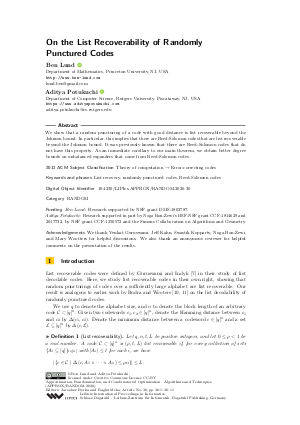LIPIcs.APPROX-RANDOM.2020.30.pdf
- Filesize: 449 kB
- 11 pages

 Creative Commons Attribution 3.0 Unported license
Creative Commons Attribution 3.0 Unported license





Feedback for Dagstuhl Publishing